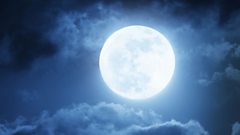What do clouds feel like?
We meet a meteorologist as we attempt to make a tiny cloud at ground level in the studio, and we try to answer the question: Could aliens find us?
This week we turn our gaze skywards to tackle three questions about what’s going on above us. Three year old Zac from the UK wants to know what clouds feel like – if they’re supposedly like steam, then how are they cold?
Presenter Graihagh Jackson meets a meteorologist who can not only tell us but show us the answer, as we attempt to make a tiny cloud at ground level in the studio. Listener Agnese is looking beyond the cloud base and up to our nearest neighbour. She’d like to know why it is that we can see the Moon during the day. And Graihagh heads out to one of the longest-running and largest steerable telescopes in the world: The 76-metre Lovell Telescope at Jodrell Bank Observatory in the UK. Here, she finds out the answer to Sandeep from India’s extra-terrestrial question: Could aliens find us?
(Image: Clouds in a blue sky. Credit: Getty Images)
Last on
More episodes
Previous
Next
Clip
-
![]()
Moon illusion: The celestial phenomenon that tricks your brain
Duration: 01:39
Broadcasts
- Fri 1 Mar 2019 20:32GMT�鶹�� World Service Online, Americas and the Caribbean, UK DAB/Freeview, News Internet & Europe and the Middle East only
- Fri 1 Mar 2019 21:32GMT�鶹�� World Service Australasia & East Asia only
- Sun 3 Mar 2019 00:32GMT�鶹�� World Service
- Mon 4 Mar 2019 05:32GMT�鶹�� World Service Online, UK DAB/Freeview, News Internet & Europe and the Middle East only
- Mon 4 Mar 2019 06:32GMT�鶹�� World Service Australasia, Americas and the Caribbean & South Asia only
- Mon 4 Mar 2019 07:32GMT�鶹�� World Service East and Southern Africa & East Asia only
- Mon 4 Mar 2019 11:32GMT�鶹�� World Service West and Central Africa
- Mon 4 Mar 2019 14:32GMT�鶹�� World Service Australasia
- Mon 4 Mar 2019 18:32GMT�鶹�� World Service East and Southern Africa, South Asia & West and Central Africa only
Podcast
-
![]()
CrowdScience
Answering your questions about life, Earth and the universe



